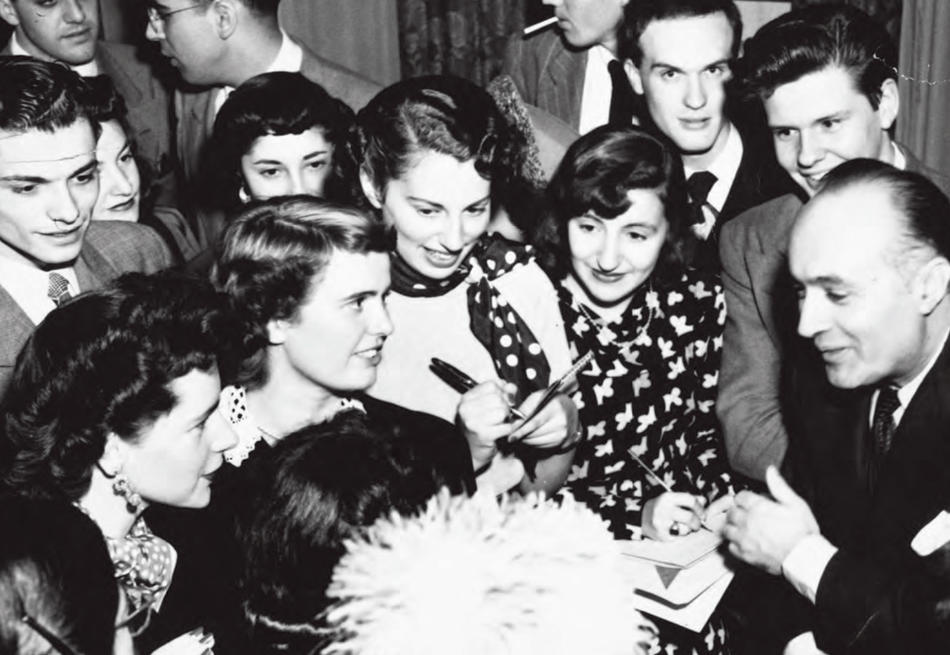Columbia’s Maison Française has a long tradition of hosting the leading figures of French culture. Take this après-guerre run: Sartre spoke here in 1945. Camus spoke in 1946. Piaf spoke — and sang — in 1947. And in 1948, film star Charles Boyer (above, surrounded by adoring Columbia and Barnard students) spoke, mostly in French, to the French Club.
The Maison Française was established by Columbia president Nicholas Murray Butler in 1913 as a “center for the study of French civilization and French literature” — the first French cultural institute on an American campus. That inaugural year, Butler, a man of grand gesture and grander influence, brought the French philosopher Henri Bergson to Morningside Heights as a visiting professor. More recently, the Maison has hosted Shoah filmmaker Claude Lanzmann, writer and professor emerita Maryse Condé, economist Thomas Piketty, and philosopher Jacques Rancière.
In 1966, the Maison Française moved from its original townhouse at 411 West 117th Street; a decade later it arrived at its current home in Buell Hall, where it has sponsored conferences, talks, debates, and film screenings to promote intellectual and cultural exchanges not just with France, but with the entire French-speaking world.
Now, in 2013, the Maison Française is toasting its centenary with events throughout the year, starting with an exhibit in Buell Hall, on view through October 30. Curated by Maison Française director Shanny Peer, and jointly organized by the Maison Française and the Rare Book and Manuscript Division of Columbia Libraries, the exhibit includes documents, program materials, audio recordings, and photographs of distinguished thinkers, artists, and vedettes de cinéma.
Charles Boyer was a cultural ambassador par excellence, if his trip to Columbia is any clue. The Spectator reported that Boyer, in town to act in an English adaptation of Sartre’s play Les Mains sales, left the Maison Française after his talk to find a group of teenagers “waiting breathlessly” to ask for his autograph. “He cheerfully signed the slips of paper handed him,” wrote the Spec, “stating, ‘I never understood what value they would have.’”



